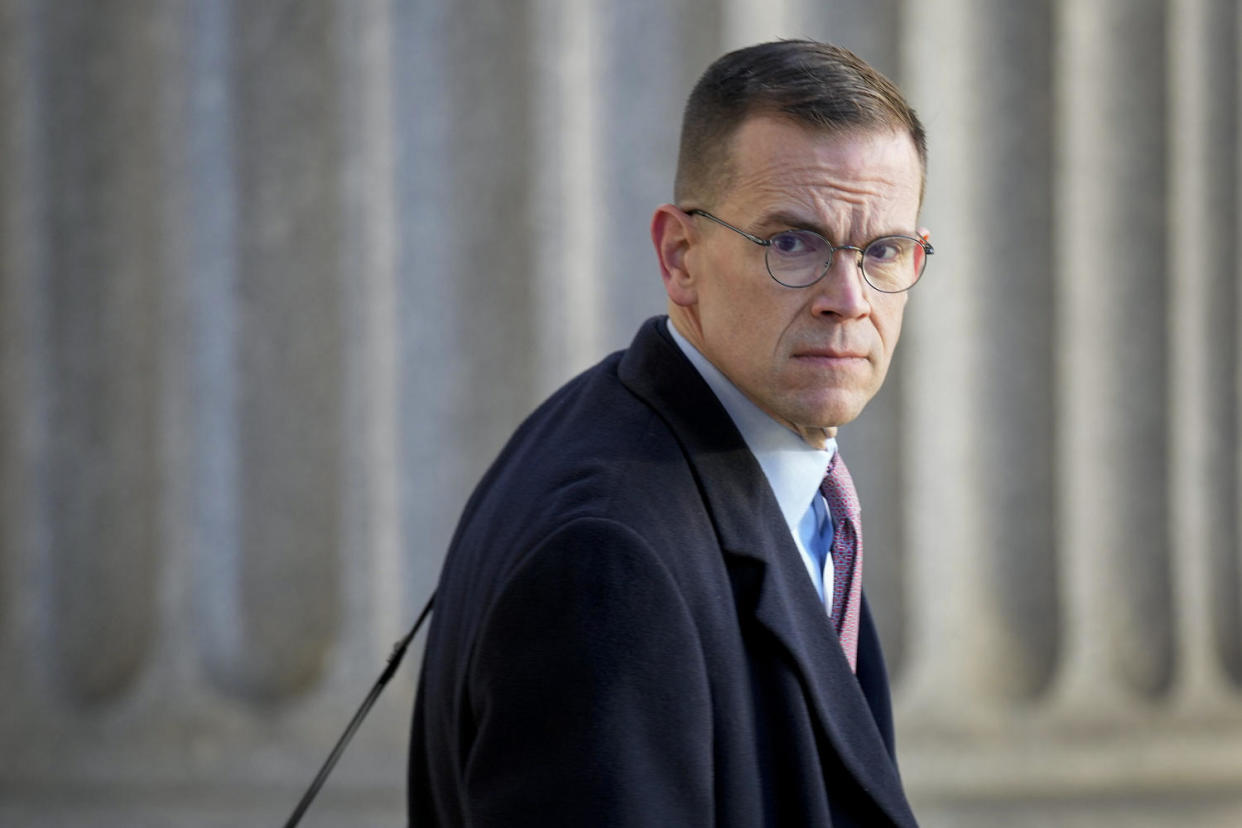Judge temporarily bans Wayne LaPierre from returning to lead the National Rifle Association
A New York judge on Monday temporarily banned Wayne LaPierre from returning to lead the National Rifle Association but said he would not appoint an independent monitor to oversee the gun rights group.
State Supreme Court Judge Joel Cohen denied one of the most significant remedies proposed by New York Attorney General Letitia James after a jury found the NRA and its executives liable in a civil corruption trial.
In February, jurors determined that LaPierre, 74, had diverted millions of dollars from the NRA to live luxuriously, while the organization failed to properly manage its finances and adopt a whistleblower policy.
Cohen has spent the last two weeks weighing whether to award nonmonetary relief in the second phase of the civil trial.
James sought to permanently bar LaPierre from returning to the lead the NRA or its affiliates. Cohen issued a 10-year ban instead.
The attorney general also wanted the judge to appoint an independent monitor who would oversee the NRA's finances and report to the court for three years, which he did not do.
“The damages portion of the case we presented, as well as the earlier trial before the jury, demonstrated that the NRA had a stunning lack of accountability and its leaders engaged in illegality and self-dealing," James said in a statement. "As a result of this case, Wayne LaPierre will be banned from the NRA for 10 years for spearheading this fraud, and the court called for additional proposed reforms to the NRA. After years of corruption, the NRA and its senior leaders are finally being held accountable.”
LaPierre served as the NRA’s CEO and executive vice president for more than 30 years before he announced his resignation at the beginning of January, days before the start of the trial, citing health issues.
Jurors still found there was cause for his removal from the NRA. They determined he had violated his statutory obligation to discharge the duties of his position in good faith, as did John Frazer, the group’s corporate secretary and former general counsel, and Wilson “Woody” Phillips, the NRA’s former treasurer and chief financial officer.

The jury said that LaPierre had caused $5.4 million in monetary harm to the NRA, but that he has already repaid at least $1 million of that. Phillips caused $2 million in monetary harm to the NRA, the jurors found, while Frazer did not cause any monetary harm to the group.
On Monday, Cohen declined to impose restrictions on Frazer.
Before the second phase of the trial began, the parties reached a stipulation agreement on the appropriate remedy for Phillips.
Phillips, who is retired, will be prohibited from holding fiduciary positions with any New York nonprofit for 10 years. After a decade, he can resume serving if he first notifies the attorney general’s office and completes a training program.
He will still have to pay $2 million in damages, the attorney general said.
During oral arguments in June, LaPierre’s attorney, P. Kent Correll, argued against banning LaPierre from working for the NRA or its affiliates.
Correll said that LaPierre was retired and “not coming back” to the NRA but that LaPierre wants to “keep his right to associate freely with whomever he wants and to speak freely.”
Attorneys for the NRA, LaPierre and Frazer did not immediately respond to requests for comment.
The NRA had fought against the independent monitor, saying the attorney general could not show that the NRA had continued violating any laws.
The group said it had fired those who took advantage of it and ushered in a fresh slate of leaders, including a new chief compliance officer, an internal auditor and a president.
In May, the organization replaced Frazer as general counsel, although he was re-elected to serve as corporate secretary, the NRA said.
The NRA has operated as a nonprofit charitable corporation in New York since 1871. Its assets are required by law to be used in a way that serves the interests of its membership and advances its charitable mission.
NRA membership dues and contributions have drastically fallen in the last few years, court records show.
Dues dropped from about $170 million in 2018 to nearly $62 million in 2023, according to a court exhibit that contains the NRA’s audited financial statements. Contributions were nearly cut in half in that period.






